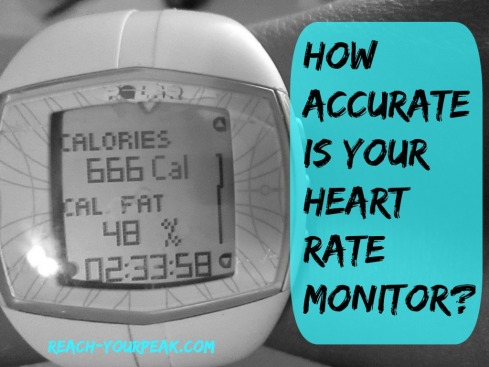I had no idea that a heart rate monitor (HRM) could be less accurate for strength training than for cardio. I figured that if your heart rate is elevated, you’re burning calories, which will be measured by the HRM. Well, this may not be the case.
 Background Image via Compfight cc
Background Image via Compfight cc
I was reading an article recently on the accuracy of heart rate monitors on SparkPeople which discussed this very topic. Here’s what they had to say about it:
A heart rate monitor (HRM) is capable of estimating calorie burn pretty accurately—but only for aerobic (cardio) exercise, not for strength training. Here’s why:
A HRM won’t give you an accurate idea of how many calories you burn during strength training, because the relationship between heart rate and calorie expenditure is not the same during strength training as during cardio exercise, which is what the HRM’s estimate is based on. Unless your weight training is very vigorous circuit training, the heart rate monitor will be overestimating your calorie burn by a fair amount.
Why will it overestimate the amount? Because apparently calories burned has to do with the number of muscle cells activated to perform an activity. These cells use energy while they are doing the work. While your heart rate may be elevated during strength training, the muscle cells aren’t using as much oxygen and energy as you would be by doing cardio – which is when you’re using several muscle groups at once. This is why you may sweat more and feel your heart rate is more elevated when strength training larger muscle groups, like legs, than smaller ones such as arms and shoulders.
Another writer on MyFitnessPal wrote about this as well, explaining it this way:
The increased heart rate that occurs with aerobic exercise is the result of the need for increased cardiac output–the heart must pump more blood to meet the energy demand of the activity. Heart rate increases because of a VOLUME load.
The increased heart rate that occurs with strength training is the result of changes in intrathoracic pressure and an increase in afterload stress. There is no corresponding increase in cardiac output, and thus only a modest increase in oxygen uptake. Heart rate increases because of a PRESSURE load.
Very interesting…
He also goes on to say that HRMs are very useful when doing any sort of cardio exercise, or even circuit training style lifting (HIIT, bootcamps, CrossFit).
So should you ditch the heart rate monitor? I don’t think so. If you already wear it for strength training exercises, you can keep doing so. I think it’s still a good GENERAL idea of what you’re burning but just be aware that it could be off, either by a small amount or a significant amount.
Both articles stated that HRMs are pretty accurate when it comes to cardio, so if you’re wearing it already then you’re all set!
I guess you learn something new everyday 😉
Do you wear a heart rate monitor while training? What do you think of these articles?
Follow Reach Your Peak:
- Facebook – http://facebook.com/reachyourpeakfitness
- Pinterest – http://pinterest.com/reachyourpeak
- YouTube – http://youtube.com/reachyourpeak
- Twitter – @pattyrivas13
- Instagram – @pattyrivas13














Judging by the calories you burned, you had one devil of a workout! 😉
lol I wish! That wasn’t a picture of my watch 🙂
Also, since I transferred I just realized that those I followed/followed me on wordpress.com won’t see my posts in their reader anymore, so feel free to sign up for my newsletter or follow on bloglovin’ 🙂
OK, thanks! I’ll follow on bloglovin. But I’m new to it and it confuses me so far.
Ahh sorry for the inconvenience I had no idea that this would happen once I transferred =/ Bloglovin is another “reader” type place to read posts from different bloggers. Or if you want, you can subscribe to my email updates via newsletter here: http://eepurl.com/Rltdn
Thank you for reading! 😀
Gotcha! I also followed you on the Twitter!